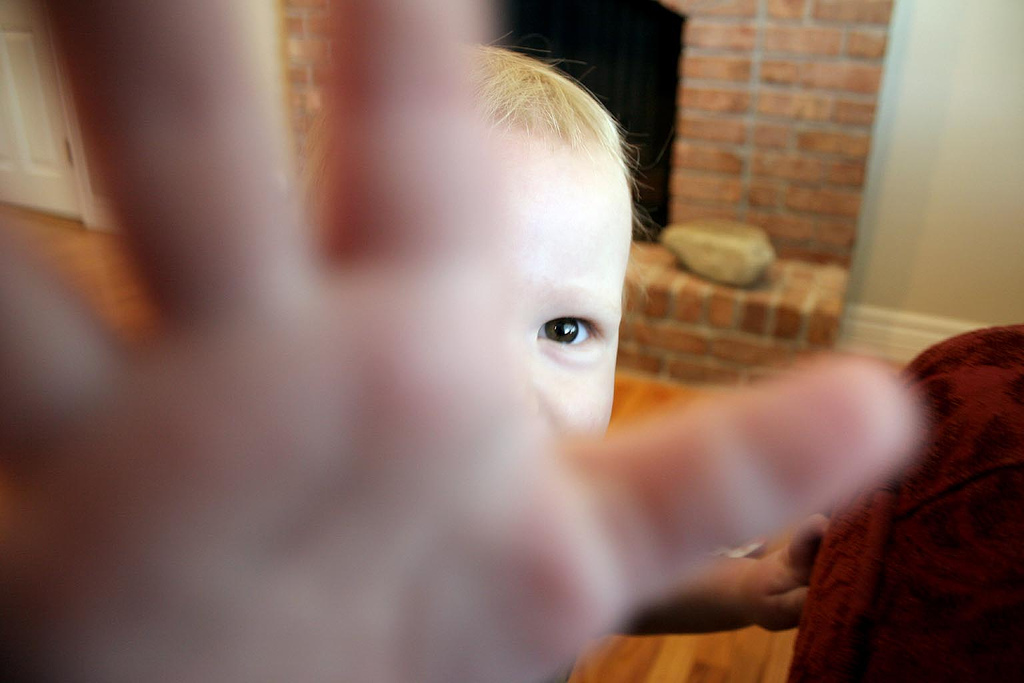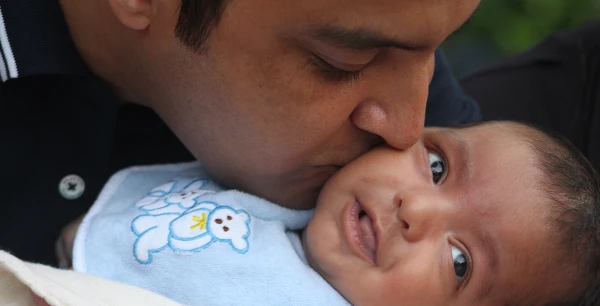Jen Varela, Certified Gentle Sleep Coach, shares her top sleep tips for your baby.
Sleep Begets Sleep
It is amazing how this works! What time does your baby go to sleep at night? Is it too late? Did you miss the “sweet spot” sleepy window? For babies six months or older consider a bedtime between 6:30-7:30 p.m. Helping your baby get the proper amount of sleep can reduce fussiness at bedtime, decrease the number of night awakenings and eliminate early rising. Also take a look at the “sweet spot” for the first nap of the day. If you wait too long then you may miss their first sleep window.
When they are infants consider keeping the window at 90 minutes between waking for the day to asleep again at the first nap. As your baby grows their ability to stay awake for longer periods of time will also grow. Between the ages of four and a half to six months your baby’s wakeful window will mature and stretch from 2 to 2 ½ hours. This window is especially important at end of the day between waking from the last nap of the day to asleep again at bedtime. Are you concerned about whether or not your baby is getting enough sleep? When you are sleep deprived yourself it is hard to keep track of how much sleep your baby is getting.
You might find yourself basing your assessment on how much sleep your baby is getting on the last 24 to 48 hours because that is all you can remember. A two-day snapshot is not enough information to know how things are really going. To get an accurate assessment on if your baby is getting enough sleep, I recommend keeping a log for five to seven days. Now, when you look at a seven-day average you will know if your baby is getting enough sleep in 24 hours.
Not Normal Is Normal
Is your baby starting to crawl? Could they be in the middle of a developmental milestone? Did you know that when your baby is in a developmental burst that they will … yes, I said WILL have a sleep regression. Did the number of night awakening increase at the same time as they were working on something new? This is a good thing because they are doing what they are supposed to do. They are consolidating memories during REM sleep, integrating their experiences and making new connections in their brain. Want to know what your baby will be working on next? Get The Wonder Weeks App!
Another area that can be difficult is the expectation of matching your baby’s sleeping schedule with your sleeping schedule. Does your baby sleep six straight hours but that stretch is from 6:30 p.m. to 12:30 a.m.? Wouldn’t it be nice if it were from 11 p.m. to 5 a.m.? When and How your baby is going to sleep will fluctuate greatly during the first six months of life. Did you know that even at six months on average a baby will wake one time a night between the hours of 10 p.m. to 6 a.m.? (Source: UC Davis Human Lactation Center) This all has to do with how the brain organizes sleep rhythms and not all babies physiologically mature at the same rate. Lastly, the “four letter” word NAPS! There I said it! Is your baby only giving you a 30-40 minute nap? Did you know that nap organization does NOT take place until your baby is four to six months old? Sometimes it might take longer; in my practice I often see that it isn’t until night sleep comes together and the baby is closer to eight months old that naps finally start coming together. Naps are inconsistent in length and time until the brain organizes it. Remember this is about physiological immaturity so try not to get frustrated if your baby takes short naps, especially in the first six months of life.
Consistent & Flexible Routines
Routine is defined by a nice flow to your day, not rigid scheduling. Doing the same thing in the same order or fashion. An example would be to eat upon waking or be social and active during alert times. The bedtime routine creates a positive association with going to sleep. You want to have a nice flow to your day and predictability can aid in better sleep. Don’t get caught up in a rigid routine, you might miss your baby’s sleep cues if you get to focused on the clock. Try doing things in the same order before sleep. A verbal sleep cue is very helpful with communicating it is time to go to sleep without it being stimulating and overly engaging. Everyone likes a little “sweet-talk” when they are tired. I have used “Sugar Night Night” with my children since birth as my sleep cue, hence the name of my business. My children are in elementary school, but even now from their beds they call out “Sugar Night Night Mom” after I tuck them in. I treasure this tradition.
Sleep Environment
Many families room-share during these early months and the number-one priority is to make sure it is a safe sleeping environment. If you are room-sharing with your baby, as hard as it is, it is important that the room is non-stimulating. Be sure to turn the TV, IPads, Radios and Cell Phones off as babies are very sensitive to these. A healthy room temperature is between 68-74 degrees. Another thing that you might find useful are room-darkening shades.
Your Baby’s Temperament
This saying implies that you accept life’s challenges as well as its joys. I would defiantly say that the temperament of your child plays a huge role of in how your baby will go to sleep. There are some babies from the get-go who are amazing sleepers, anytime, anywhere and go down happily. There are other babies that you have to use every trick in the book to get them to sleep and the trick that worked yesterday might not work today. If you have one of these little ones who needs you to do all of the work to get them to sleep then know you are not alone.
About 90% of my practice is made up of what I call “alert” babies. These are the babies who are taking everything in from day one and they do bring a lot of joy. These little “alert” ones find it very hard to let go of the day and they might not even show signs of being tired because they are so interested in everything that is going on around them. If you have one of these little ones then you know exactly what I am talking about and you can recognize another little “alert” baby when you see one. I find it kind-of crazy that the first question we often ask a new Mom is how is your baby sleeping!?! As if her parenting success is defined by how her baby is sleeping. Maybe the intended question is really how are you holding up, are you getting any rest?
I bring up this tip because I think we all can get in a comparison trap of assessing where things “should” be by how our friend’s baby is doing. May I encourage you to not “should” on yourself or others, especially when it comes to babies and sleep. If your baby is under six months and is an “alert” baby, hang in there and do what you can to get them sleep. Once you get to six months then it is an appropriate time to look into what sleep sharing or training approach would be the best fit for your baby’s temperament and your parenting style.
 Since 2010, Jen Varela of Sugar Night Night has been helping families have sweet sleep by achieving their family sleep goals whether that is in a co-sleeping environment, room sharing or families with their children in a separate room. Jen’s experience ranges from helping families with infants in sleep shaping skills to families with toddlers and/or kindergartners who are transitioning them to their own room for the first time. Jen Varela is the mother of two children. She holds a B.S. degree in Human Services with an emphasis in Counseling from California State University Fullerton, California. She is a member of the International Association of Child Sleep Consultants and a Certified Gentle Sleep Coach trained by “The Sleep Lady.” This article was previously published on Natural Baby Pros.
Since 2010, Jen Varela of Sugar Night Night has been helping families have sweet sleep by achieving their family sleep goals whether that is in a co-sleeping environment, room sharing or families with their children in a separate room. Jen’s experience ranges from helping families with infants in sleep shaping skills to families with toddlers and/or kindergartners who are transitioning them to their own room for the first time. Jen Varela is the mother of two children. She holds a B.S. degree in Human Services with an emphasis in Counseling from California State University Fullerton, California. She is a member of the International Association of Child Sleep Consultants and a Certified Gentle Sleep Coach trained by “The Sleep Lady.” This article was previously published on Natural Baby Pros.
Republished with permission from Jen Varela.
Ask your questions on the The Sleep Lady’s Facebook Page where Certified Gentle Sleep Coaches are available for further help. Celebrate your successes, too, by sharing your stories with others! Supporting each other makes parenting so much easier!




